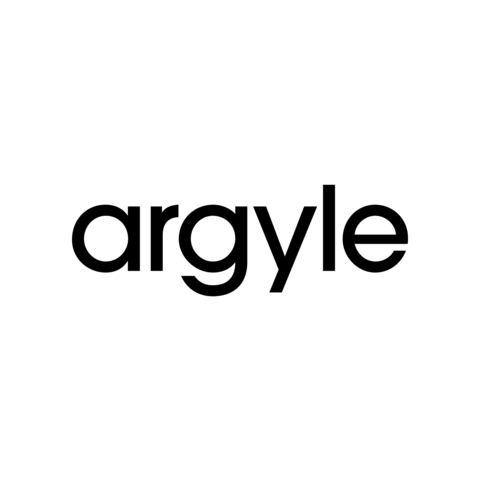Argyle Secures $55 Million Series B to Make User-permissioned Employment Data Ubiquitous and Reinvent Credit Decisioning for Lenders and Consumers
Argyle Secures $55 Million Series B to Make User-permissioned Employment Data Ubiquitous and Reinvent Credit Decisioning for Lenders and Consumers
SignalFire Leads New Investment as Argyle Unlocks Equitable Access to Credit and Financial Resources for Exploding Population of Gig, Creator Economy, and Contract Workers
NEW YORK--(BUSINESS WIRE)--Argyle, the leading employment data platform that provides companies access to user-permissioned employment records in real time, today announced its $55 million Series B. The round was led by SignalFire with participation from current investors including Bain Capital Ventures, Bedrock, and Checkr. Following Argyle’s $22.6 million in prior funding, the additional capital infusion will be used to accelerate the growth of its in-house engineering team, fuel international expansion, and scale the company’s go-to-market operations.
Argyle’s rapidly growing coverage includes over 500,000 U.S. employers, including 60% of the Fortune 500, close to 100% of gig workers, and 170+ million U.S. employees. Propelled by today’s rapidly changing work landscape, Argyle sets a new standard for how credit risk is assessed. It opens the door to broader financial access for all consumers by addressing identity, employment, and income verification in a holistic and equitable way.
“The meteoric rise of contractors, gig workers, and the creator economy necessitates new financial data infrastructure. Argyle is reinventing how employment data is managed, permissioned, evaluated, and used for good. That includes a fresh approach to modernizing outdated paper-based and low-data systems that block access to financial services for these workers. We're proud to support the stellar team at Argyle and their mission to help businesses and institutions embrace the future of work,” said Ilya Kirnos, Founding Partner at SignalFire.
Kirnos will join the Argyle Board of Directors alongside Bain Capital Ventures Partner Ajay Agarwal, Checkr Co-founder and CEO Daniel Yanisse, and Argyle Founder and CEO Shmulik Fishman. Since launching its first fund in 2015, SignalFire has scaled quickly to $1B in regulatory assets under management. Known for assisting breakout companies with its recruiting technology, the firm's notable investments include Ro, Grammarly, Frame.io, and MainStreet.
The need for a new, fair approach to credit decisioning is more urgent than ever. A recent report commissioned by Argyle, which surveyed more than 1,200 gig, freelance, and other 1099 workers, revealed that almost half (49 percent) of respondents were rejected by a financial service they knew they could afford, with over 60 percent indicating rejection as a result of a low credit score. Fifty-two percent experienced negative mental health effects and 42 percent reported adverse consequences on their family due to rejection.
“Workforce dynamics have evolved and it’s time to disrupt the status quo. While Equifax blazed trails in the employment data industry, the landscape has changed forever. It requires a dramatically different approach to employment data. It must be user-permissioned. It must be real-time. And it must be fair,” said Fishman. “Argyle is innovating technology solutions that meet these criteria to provide equitable access to financial services and products to today’s workers. It’s been our fastest year of growth to date as we’ve been turning our mission into reality. Adoption of our platform continues to exceed our expectations because consumers, financial institutions, and employers are eager for an alternative or supplement to static and incomplete data from legacy systems.”
Argyle Gives Workers a Fair Shake While Increasing Addressable Market for Businesses
Argyle is transforming credit decisioning. The company believes consumers should not be evaluated on a single opaquely derived number—namely, the credit score—over which they have little to no control. Argyle’s approach diverges from the traditional credit model and invites businesses to evaluate consumer applications for loans, housing, insurance, and other essential financial services in a new way.
Argyle’s solution enables its business customers to make decisions based on income verification and employment data that is real-time, user-permissioned, and equitable for all working individuals, not just full-time employees. Argyle provides transparency into 1099 workers’ work and income habits—information traditionally provided through a payroll system to employment benefits providers. This helps businesses make well-informed decisions and more readily provide critical services to gig and creator economy workers, including workers compensation insurance, health insurance, and financial wellness products.
When it comes to achieving the American Dream of home ownership, many individuals are being held back because they cannot qualify for mortgages based on traditional, static employment data. To remedy this, Argyle is also revolutionizing a lagging element of the mortgage industry’s digitization process through lender access to accurate, real-time income and employment data. Argyle offers a new model for income and employment data collection and authentication that satisfies compliance requirements from application to closing. With fewer steps to close and less manual intervention, Argyle makes the mortgage process easier and more reliable for all parties, reducing the time and cost to originate new loans. Last year, Argyle announced a strategic partnership with Finlocker, which integrates Argyle’s employment and income data into Finlocker’s financial fitness app to help qualify consumers for a mortgage.
Additional Resources
- Blog: Argyle Lands $55 Million in Series B Funding
- Report: Trends in Financial Access Survey Findings
- Argyle Verify, Self-serve Tool for Generating Income and Employment Verification
About Argyle
Argyle is building the leading user-consent-based platform for employment data, helping people avoid situations where their personal information is sold or used without their consent or knowledge. With Argyle, any business can process income and work verifications, gain real-time transparency into earnings, as well as view and update worker profile details. By removing the barriers between a worker, the companies they make money from, and the business they buy services and products from, Argyle has reimagined how employment data can be leveraged to benefit both institutions and individuals.
Contacts
Media Contact
Amber Winans
Bhava Communications for Argyle
argyle@bhavacom.com
510-575-0492
